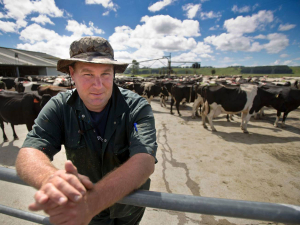Federated Farmers are issuing a reminder that price penalties won’t drive down livestock emissions without affordable and practical new technologies being available to farmers.
The comments come after Climate Change Minister James Shaw said that “…Pricing isn’t the only tool in the toolbox, but it remains the best way to reduce emissions directly – and that’s the name of the game.”
Feds president Andrew Hoggard says Shaw’s comments represent “an overly-simplistic and domestic focused solution to a complex global problem.”
"The global atmosphere does not benefit from New Zealand shrinking food production, even if our politicians can crow about local emissions reductions. Our farms’ emissions footprint is world-leading; forgone production here would just shift offshore to less efficient farmers."
Hoggard claims an overly high price signal for livestock emissions would also have severe implications for the agricultural sector, regional economies, and the wider New Zealand economy.
Federated Farmers says that modelling performed under the He Waka Eke Noa (HWEN) partnership shows that to apply pricing alone to achieve the government’s methane reduction targets would result in a considerable number of sheep and beef farms going broke, along with a significant number of dairy farms.
“This is what Feds have been saying for years,” says Hoggard.
"The work showed that to reduce methane emissions by 5% by 2030 with a price alone (that’s only half of the Government’s current targets) would require 20% and 58% cuts in the profitability of dairy and sheep and beef farming respectively.”
Hoggard claims that despite being part of the HWEN partnership, the Government never requested the full price be modelled.
"This is, of course, notwithstanding Federated Farmers’ opposition to the current targets which are unscientific and set the bar for methane much higher in terms of warming than all other gases."
He says the modelling doesn’t show the wider impacts of the price on the regional and national economy.
"That is further work we would like carried out, but you don’t need to win a Nobel prize in economics to work out it will be severe. Drops in production of both red meat and dairy will also mean fewer processing jobs and farming support jobs in provincial centres and other losses throughout the wider economy," says Hoggard.
Another report commissioned by He Waka Eke Noa showed that "…With partial (50%) offsetting of emissions, there could be a 15% increase in global emissions for every tonne of emissions reduced in New Zealand from lower output of beef…. The equivalent estimates for sheep and dairy production are emissions increases of 7% and 30% respectively."
The report states that the figures are only illustrative but highlights the benefits of avoiding emissions leakage by promoting efficient production and the use of technology while disincentivising output reduction in New Zealand.
Hoggard says the process has shown the best way to achieve reductions is through new technologies and their adoption on farm.
He says a price mechanism should only be used to incentivise farmers to take up those technologies.
"That is one of the key principles in the founding document of He Waka Eke Noa. If the Government and Minister Shaw did not agree with this clearly defined role for an appropriate pricing mechanism, then they should not have agreed to He Waka Eke Noa.
"Federated Farmers has not altered its policy on pricing agricultural emissions since making the He Waka Eke Noa proposal in good faith and we hope that the Government has not either."



















